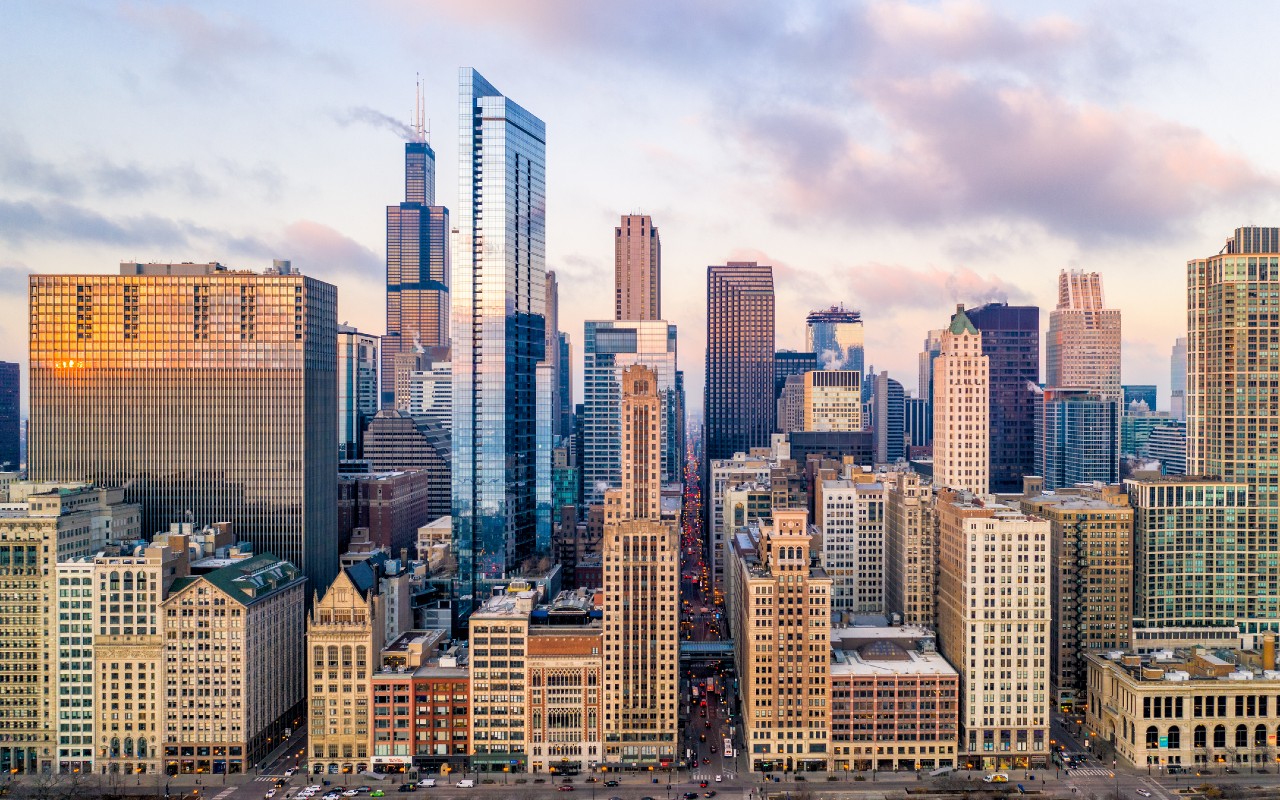Sean “Diddy” Combs headed to jail Tuesday to await trial, but what exactly was he arrested for and where do things stand?
The major move comes 10 months after sustained public allegations against the music mogul. His attorney says he is innocent and he has pleaded not guilty.
Here's a look at what we know so far:
Why was 'Diddy' arrested?
Combs was jailed and ordered held without bail in a federal sex trafficking case that accuses him of presiding over a sordid empire of sexual crimes protected by blackmail and shocking acts of violence.
The music mogul is charged with racketeering conspiracy and sex trafficking. The indictment against him lists allegations that go back to 2008.
He's accused of inducing female victims and male sex workers into drugged-up, sometimes dayslong sexual performances dubbed “Freak Offs." The indictment also refers obliquely to an attack on his former girlfriend, the R&B singer Cassie, that was captured on video.
Local
The Bad Boy Records founder is accused of sexually abusing and using physical force toward women and getting his personal assistants, security and household staff to help him hide it all. Prosecutors say he also tried to bribe and intimidate witnesses and victims to keep them quiet.
"Simply put, he is a serial abuser and a serial obstructor,” Assistant U.S. Attorney Emily Johnson told a court.
Feeling out of the loop? We'll catch you up on the Chicago news you need to know. Sign up for the weekly> Chicago Catch-Up newsletter.
Prosecutors said in court papers that they had interviewed more than 50 victims and witnesses and expect the number to grow. They said they would use financial, travel and billing records, electronic data and communications and videos of the “Freak Offs” to prove their case.
Combs was arrested Monday in Manhattan, roughly six months after federal authorities raided his luxurious homes in Los Angeles and Miami.
A conviction on every charge would require at least 15 years in prison, with the possibility of a life sentence.
The indictment describes Combs as the head of a criminal enterprise that engaged or attempted to engage in sex trafficking, forced labor, interstate transportation for purposes of prostitution, drug offenses, kidnapping, arson, bribery and obstruction of justice.
Combs and his associates wielded his “power and prestige” to intimidate and lure women into his orbit, “often under the pretense of a romantic relationship,” according to the indictment.
It says he then would use force, threats and coercion to get the women to engage with male sex workers in the “Freak Offs” — “elaborate and produced sex performances” that Combs arranged and recorded, creating dozens of videos.
He ensured their participation by procuring and providing drugs, controlling their careers, leveraging his financial support and using intimidation and violence, according to the indictment. It said his employees facilitated “Freak Offs” by taking care of tasks like travel and hotel arrangements and stocking them with such supplies as drugs and baby oil.
The events could last for days, and Combs and victims would often receive IV fluids to recover from the exertion and drug use, the indictment said.
During the searches of Combs’ homes earlier this year, law enforcement seized narcotics, videos of the performances and more than 1,000 bottles of baby oil and lubricant, according to prosecutors. They said agents also seized firearms and ammunition, including three AR-15s with defaced serial numbers in his bedroom closet in Miami.
The indictment says Combs choked, shoved, hit and kicked people, causing injuries that often took days or weeks to heal. His employees and associates sometimes kept victims from leaving or tracked down those who tried, the indictment said.
It alleges that Combs used explicit recordings as “collateral" to ensure the women's continued obedience and silence. He also exerted control over victims by promising career opportunities, providing and threatening to withhold financial support, dictating how they looked, monitoring their health records and controlling where they lived, according to the indictment.
As the threat of criminal charges loomed, Combs and his associates pressured witnesses and victims to stay silent, offering bribes and supplying false narratives of what happened, the indictment says.
In a court filing, prosecutors accused Combs and an unidentified co-conspirator of kidnapping someone at gunpoint in December 2011 in order to facilitate a break-in at another person’s home. Two weeks later, prosecutors wrote, Combs set fire to someone’s vehicle by slicing open its convertible top and dropping in a Molotov cocktail.
All of this, prosecutors say, was happening behind the facade of Combs’ global music, lifestyle and clothing business.
In November, Ventura filed a lawsuit saying he had beaten and raped her for years. She accused Combs of coercing her, and others, into unwanted sex in drug-fueled settings.
The suit was settled in one day, but months later, CNN aired hotel security footage showing Combs punching and kicking Ventura and throwing her on a floor. After the video aired, Combs apologized, saying, “I was disgusted when I did it.”
The indictment refers to the attack, without naming Ventura, and says Combs tried to bribe a hotel security staffer to stay mum about it.
Douglas Wigdor, a lawyer for Ventura, declined to comment Tuesday.
What did Combs and his lawyer say?
“Not guilty,” Combs told a court this week.
After U.S. Magistrate Judge Robyn Tarnofsky declined to grant him bail, Combs took a long swig from a water bottle, then was led out of court, turning toward family members in the audience as he went.
“Mr. Combs is a fighter. He’s going to fight this to the end. He’s innocent,” his lawyer, Marc Agnifilo, said after court. He plans to appeal the bail decision.
"Simply put, he is a serial abuser and a serial obstructor,” Assistant U.S. Attorney Emily Johnson told a court.
Agnifilo acknowledged Combs was “not a perfect person," saying he'd used drugs and had been in “toxic relationships” but was getting treatment and therapy.
“The evidence in this case is extremely problematic," the attorney told the court.
He maintained that the case stemmed from one long-term, consensual relationship that faltered amid infidelity. He didn't name the woman, but the details matched those of Combs’ decade-long involvement with Cassie, whose legal name is Casandra Ventura.
The “Freak Offs,” Agnifilo contended, were an expansion of that relationship, and not coercive.
“Is it sex trafficking? Not if everybody wants to be there,” Agnifilo said, arguing that authorities were intruding on his client’s private life.
Combs' lawyer said his client didn’t own the guns found in his bedroom closet, noting that he employs a security company.
Combs and his attorneys also denied similar allegations made by others in a string of lawsuits.
Who is Sean 'Diddy' Combs?
Combs is widely recognized as one of the most influential figures in hip-hop.
Combs is one of the best-known music executives, producers and performers across hip-hop, having won three Grammys and worked with artists such as Notorious B.I.G., Mary J. Blige, Usher, Lil Kim, Faith Evans and 112. He founded Bad Boy Records in 1993, the influential fashion line Sean John, a vodka brand and the Revolt TV network. He sold off his stake in the latter company in June of this year.
In the ‘00s, he was a producer on MTV’s reality television series “Making the Band,” and “Making His Band,” launching the careers of artists like the girl group Danity Kane while embodying a kind of temperamental, “grandiose television personality,” A.D. Carson, associate professor of hip-hop at University of Virginia points out.
It has been 17 years since Combs had a top 10 hit — 2007’s “Last Night” featuring Keisha Cole hit No. 10 on the Billboard Hot 100. Still, his career and cultural contributions continue to be celebrated. In 2022, Combs received the Lifetime Achievement Award at the BET Awards. Last year, he performed at the MTV VMAs and released his fifth studio album, “The Love Album: Off the Grid,” his first new album since 2006 chart-topping “Press Play."
“The Love Album” was nominated for best progressive R&B album at the Grammy Awards. Combs did not attend.
Where is Combs in jail?
Combs, 54, was sent to the Metropolitan Detention Center in Brooklyn on Tuesday — a place that’s been described as “hell on earth” and an “ongoing tragedy."
The facility, the only federal jail in New York City, has been plagued by problems since it opened in the 1990s. In recent years, its conditions have been so stark that some judges have refused to send people there. It has also been home to a number of high-profile inmates, including R. Kelly, Ghislaine Maxwell and cryptocurrency fraudster Sam Bankman-Fried.
In a statement, the federal Bureau of Prisons said: “We also take seriously addressing the staffing and other challenges at MDC Brooklyn.” An agency team is working to fix problems, including by adding permanent correctional and medical staff, remedying more than 700 backlogged maintenance requests and answering judges' concerns.
A judge on Wednesday denied a request by Combs' lawyers to let him await trial under house arrest at his $48 million mansion on an island in Miami Beach, Florida.
Combs’ lawyers argued in paperwork seeking his release that the Metropolitan Detention Center is not fit for pretrial detention. They cited recent detainee deaths, and the concerns shared by judges that the jail is no place for anyone to be held.
Asked about keeping a high-profile inmate like Combs locked up, particularly in light of Epstein’s 2019 death, Manhattan-based U.S. Attorney Damian Williams said: “We are concerned with anyone’s safety whenever they are detained prior to trial.”
“I do not draw any sort of connection between Jeffrey Epstein’s suicide and what may or may not happen to any other defendant while they are detained pretrial,” he added.
Combs' lawyer said Wednesday that the rapper is being held in MDC Brooklyn's special housing unit, which offers an extra layer of security but can make trial preparation more onerous. He asked that Combs be moved to a New Jersey jail, but a judge said it's up to the Bureau of Prisons to decide.



